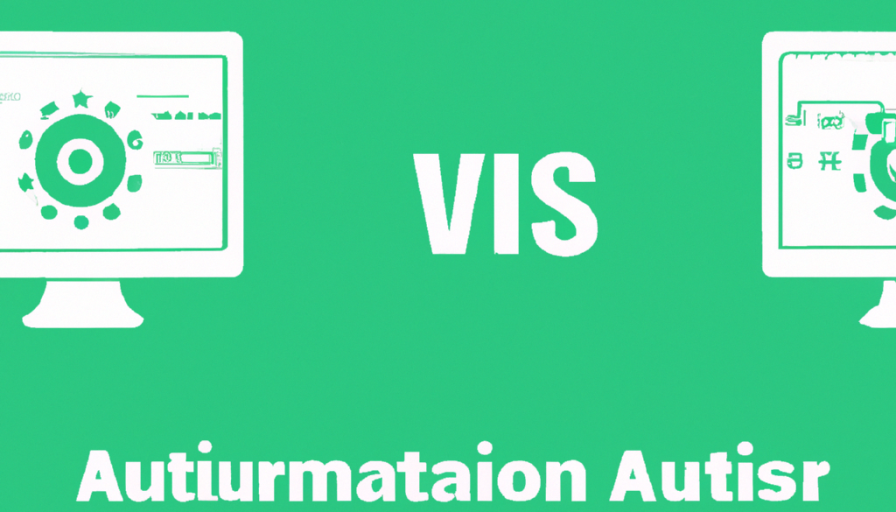AI Marketing Automation for A/B Testing
Artificial Intelligence (AI) has revolutionized various industries, and marketing is no exception. With the advent of AI marketing automation, businesses have gained the ability to streamline their processes, optimize customer experiences, and drive higher conversions. One of the key applications of AI in marketing is A/B testing. In this article, we will delve into the significance of AI marketing automation for A/B testing and explore its benefits for businesses.
Understanding A/B Testing
A/B testing, also known as split testing, is a method used to compare two different versions of a webpage or marketing campaign to determine which one performs better. By presenting these variations to a portion of your target audience and analyzing the results, you can make data-driven decisions to enhance your marketing efforts. Traditionally, A/B testing required manual analysis and interpretation, which was time-consuming and often prone to human errors. However, with the introduction of AI marketing automation, this process has become much more efficient and accurate.
The Role of AI in A/B Testing
AI marketing automation leverages machine learning algorithms and advanced analytics to optimize A/B testing efforts. By automating the process, businesses can quickly identify patterns and trends that impact customer behavior and conversions. The following are some key ways in which AI enhances A/B testing:
1. Data Analysis and Insights
AI algorithms can crunch vast amounts of data and provide valuable insights about user behavior, preferences, and responses to different variations. This allows marketers to make informed decisions based on concrete data rather than relying on assumptions or gut feelings. By understanding how users interact with different elements of a webpage or marketing campaign, businesses can refine their strategies for better results.
2. Personalization and Targeting
AI marketing automation enables personalized experiences by tailoring content and user journeys based on individual preferences and behaviors. By analyzing user data, AI algorithms can identify segments within your target audience and create personalized variations for A/B testing. This level of personalization helps businesses deliver more relevant and engaging experiences to their customers, ultimately leading to higher conversions.
3. Dynamic Testing and Optimization
Traditional A/B testing involved running experiments for a fixed duration and then analyzing the results. However, AI marketing automation allows for dynamic testing, where algorithms continuously optimize variations based on real-time data. This means that businesses can make adjustments on the fly, ensuring that the best-performing version is always presented to the audience. As a result, you save time and resources while maximizing the effectiveness of your marketing campaigns.
4. Prediction and Forecasting
AI algorithms can learn from historical data to predict the outcomes of future A/B tests. By analyzing patterns and trends, these algorithms can provide valuable forecasts about the potential impact of different variations. This predictive capability allows marketers to make data-driven decisions with confidence, increasing the chances of success in their A/B testing endeavors.
Benefits of AI Marketing Automation for A/B Testing
Implementing AI marketing automation for A/B testing offers several significant benefits for businesses:
1. Improved Accuracy and Efficiency
AI algorithms can process and analyze large volumes of data with precision and speed, eliminating the risk of human errors and biases. This significantly improves the accuracy and reliability of A/B testing results, allowing businesses to make confident decisions based on data-driven insights.
2. Time and Resource Savings
By automating the A/B testing process, businesses can save valuable time and resources. AI algorithms can continuously monitor and optimize variations, reducing the need for manual intervention. This frees up marketers’ time, allowing them to focus on other strategic initiatives and tasks that require human expertise.
3. Enhanced Customer Experience
AI marketing automation enables businesses to deliver personalized experiences at scale. By tailoring content and user journeys based on individual preferences, businesses can create more engaging and relevant experiences for their customers. This leads to increased customer satisfaction, loyalty, and ultimately, higher conversions.
4. Increased Conversions and Revenue
The ultimate goal of A/B testing is to optimize marketing efforts and drive higher conversions. By leveraging AI marketing automation, businesses can identify the most effective variations and refine their strategies accordingly. This leads to improved conversion rates, increased revenue, and a higher return on investment (ROI) for marketing campaigns.
Conclusion
AI marketing automation has revolutionized the way businesses conduct A/B testing. By leveraging advanced algorithms and analytics, businesses can gather valuable insights, optimize variations, and deliver personalized experiences to their customers. The benefits of AI marketing automation extend beyond improved accuracy and efficiency; they encompass enhanced customer experiences, increased conversions, and ultimately, higher revenue. As businesses continue to embrace the power of AI, A/B testing becomes an essential tool for driving marketing success.


